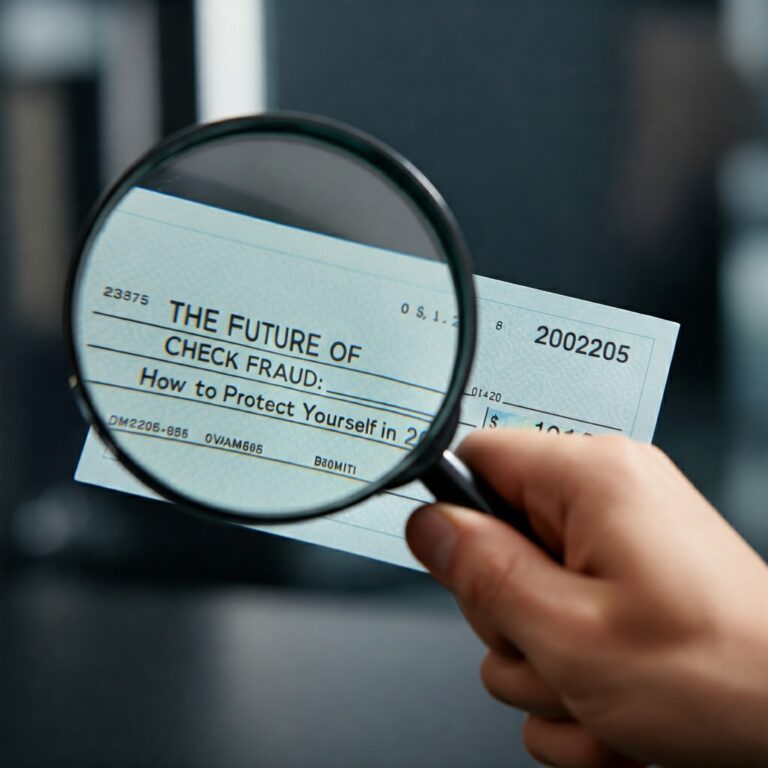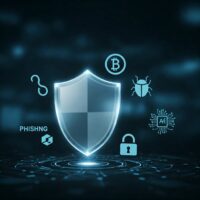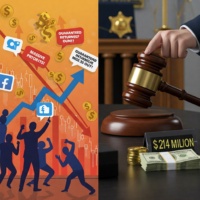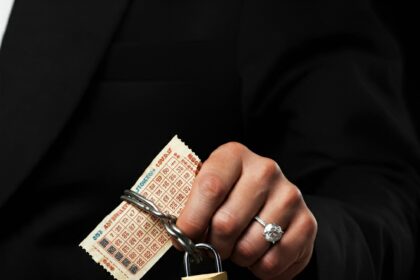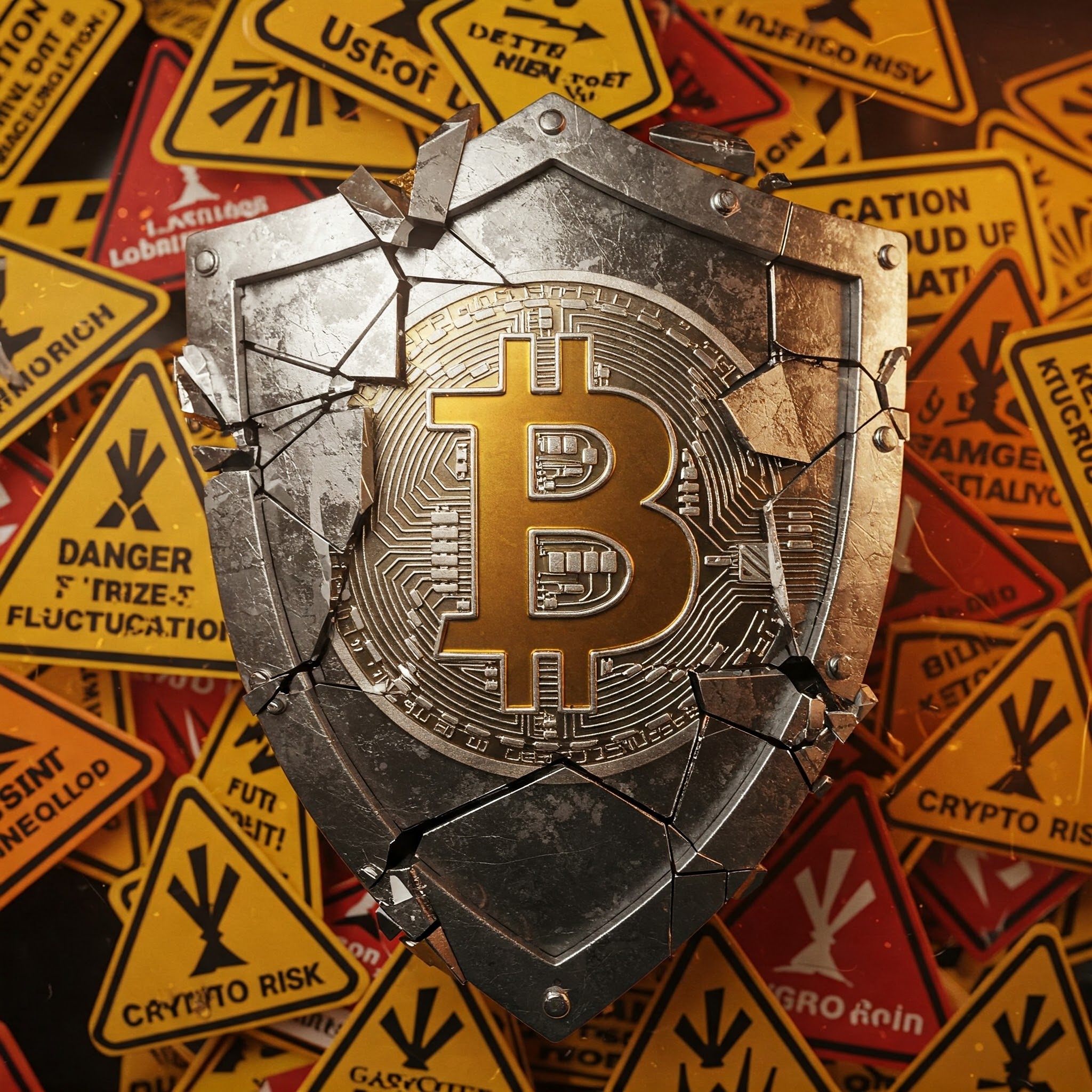Despite the rise of digital payments, checks remain a common method of transaction in 2025. This continued reliance makes them an attractive target for fraudsters, who are constantly devising new and sophisticated techniques to exploit vulnerabilities. This comprehensive article delves into the intricacies of check fraud in 2025, examining its various forms, the latest trends, and effective prevention strategies.
What is Check Fraud?
Check fraud is a form of financial crime where individuals illegally alter or replicate checks to deceive financial institutions or individuals for financial gain. This can involve:
- Forgery: Signing someone else’s name on a check without authorization.
- Counterfeiting: Creating fake checks using sophisticated printing techniques.
- Alteration: Changing details on a legitimate check, such as the payee or amount.
- Check Kiting: Exploiting the float time between check deposit and clearance to create artificial funds.
- Closed Account Fraud: Writing checks from an account that has been closed.
Emerging Trends in Check Fraud in 2025
While traditional methods persist, check fraud in 2025 is evolving with new technologies and tactics:
- Artificial Intelligence (AI): Fraudsters are leveraging AI to create highly convincing counterfeit checks, making it harder for banks and individuals to detect them.
- Mobile Deposit Fraud: With the convenience of mobile check deposit, criminals are using advanced editing software to alter check images before submitting them.
- Social Engineering: Fraudsters employ sophisticated social engineering tactics to trick individuals into providing access to their checks or account information.
- Dark Web Marketplaces: The dark web provides a platform for criminals to buy and sell stolen check information, counterfeit checks, and fraud tools.
- Collaboration with Insider Threats: Fraudsters may collude with bank employees or individuals with access to checks to facilitate their schemes.
Frequently Asked Questions (FAQ)
1. How can I protect myself from check fraud?
- Monitor your account regularly: Review your bank statements frequently for any suspicious activity.
- Use secure check stock: Opt for checks with security features like watermarks, microprinting, and chemically sensitive paper.
- Limit personal information on checks: Avoid printing your social security number or driver’s license number on your checks.
- Safeguard your checks: Store your checks in a secure location and shred any voided or unused checks.
- Be cautious with mobile deposits: Ensure you’re using a secure network and a reputable banking app.
- Verify check requests: If someone requests payment by check, confirm their identity and the legitimacy of the request.
2. What should I do if I suspect check fraud?
- Contact your bank immediately: Report the suspected fraud to your bank as soon as possible.
- File a police report: Provide law enforcement with all relevant information and documentation.
- Review your credit report: Check your credit report for any unauthorized activity.
- Consider a credit freeze: A credit freeze can prevent fraudsters from opening new accounts in your name.
3. How do banks detect check fraud?
Banks employ a multi-layered approach to detect check fraud:
- Signature verification: Comparing the signature on the check with the account holder’s signature on file.
- Check stock analysis: Examining the check for security features and signs of tampering.
- Machine learning algorithms: Utilizing AI to identify patterns and anomalies in check transactions.
- Positive Pay: A service that allows businesses to verify checks presented for payment against a list of issued checks.
4. What are the penalties for check fraud?
The penalties for check fraud vary depending on the severity of the crime and state laws. They can include:
- Fines: Significant financial penalties can be imposed on individuals convicted of check fraud.
- Restitution: Courts may order offenders to repay the victims of their crimes.
- Imprisonment: Jail time can be imposed for serious check fraud offenses.
- Damage to credit score: A conviction for check fraud can negatively impact an individual’s credit score.
5. How is technology helping to prevent check fraud?
- Advanced check security features: New security features like holograms and embedded chips are making it harder to counterfeit checks.
- Real-time fraud detection systems: Banks are using sophisticated software to identify and flag suspicious check transactions in real-time.
- Biometric authentication: Some banks are implementing biometric authentication for mobile check deposit to verify the user’s identity.
- Blockchain technology: Blockchain has the potential to enhance check security by creating an immutable record of check transactions.
6. What are some common check fraud scams to watch out for?
- Overpayment scams: A scammer sends a check for an amount greater than the agreed-upon price and asks the recipient to wire back the difference.
- Lottery scams: The victim receives a check and a notification that they have won a lottery, but they are required to pay taxes or fees upfront.
- Mystery shopper scams: The victim receives a check to deposit and is instructed to use the funds to evaluate the services of certain businesses.
- Employment scams: Fraudsters offer fake job opportunities and send a check for the victim to deposit, often with instructions to purchase equipment or supplies.
7. Can I recover my money if I am a victim of check fraud?
The ability to recover funds lost to check fraud depends on various factors, such as the type of fraud, the bank’s policies, and how quickly the fraud is reported. It’s crucial to contact your bank immediately and file a police report to increase your chances of recovering your losses.
8. Is it safe to accept checks from strangers?
Generally, it’s advisable to exercise caution when accepting checks from strangers. If you must accept a check, take steps to verify the individual’s identity and confirm the legitimacy of the check. Consider waiting for the check to clear before releasing any goods or services.
9. What is check washing?
Check washing is a technique where criminals use chemicals to erase the ink on a check, such as the payee and amount. They then alter the check with their own information and cash it fraudulently.
10. Are cashier’s checks safe from fraud?
While cashier’s checks are generally considered safer than personal checks, they are not entirely immune to fraud. Criminals can create counterfeit cashier’s checks or alter legitimate ones. It’s essential to verify the authenticity of a cashier’s check with the issuing bank before accepting it.
Preventing Check Fraud: A Shared Responsibility
Combating check fraud requires a collaborative effort between financial institutions, businesses, and individuals.
For Financial Institutions:
- Invest in advanced fraud detection technologies.
- Enhance employee training on check fraud prevention.
- Collaborate with law enforcement to apprehend and prosecute fraudsters.
- Educate customers about check safety and fraud prevention strategies.
For Businesses:
- Implement Positive Pay or similar check verification services.
- Train employees on how to identify and handle suspicious checks.
- Establish clear procedures for check acceptance and processing.
- Use secure check stock and storage practices.
For Individuals:
- Stay informed about the latest check fraud trends and scams.
- Monitor your bank account regularly and report any suspicious activity.
- Follow safe check handling practices.
- Be cautious when accepting checks from unfamiliar sources.
By working together and staying vigilant, we can minimize the risk of check fraud and protect ourselves from financial losses.
